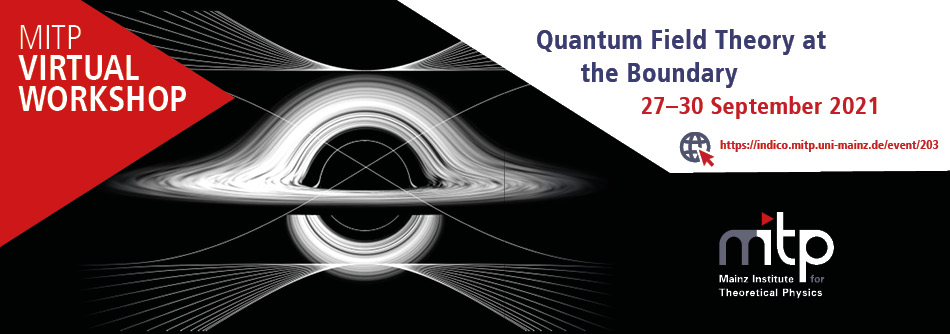Boundaries and defects have been at the heart of crucial developments in theoretical physics in the last 20 years: holography (field theories could live at the boundary of a higher- dimensional gravitational theory), entanglement (the entangling surface can be treated as a defect), black holes (the horizon is a boundary), topological insulators and semi-metals (the topologically-protected massless modes live at the boundary), and non-local operators such as Wilson and ‘t Hooft lines (defects defined by appropriate boundary conditions). Additionally, many other areas have made major advances in recent years whose implications for quantum field theory with boundaries and defects have yet to be explored fully: the conformal bootstrap, dualities among (2+1)d quantum field theories, supersymmetric localization, integrability, and so on.
However, progress in these areas has largely been carried out by separated communities working in isolation from the others. This scientific program thus aims to bring together a diverse group of leading theorists interested in boundaries and defects in quantum field theory, from the formal/mathematical to the applied, to forge collaborations between different areas, identify common subjects and complementary approaches, and set the agenda for future developments and new applications. The three broad focus areas will be:
-
Conformal field theories with boundaries and defects
-
Supersymmetry and Duality with boundaries and defects
-
Curved space, gravity and entanglement
The participation of prominent experts will ensure top-quality research output, with significant impact on several sub-fields, including string theory, particle physics, condensed matter physics, and beyond.
A list of the speakers and their slides is available here.
Videos of the talks are available here.

